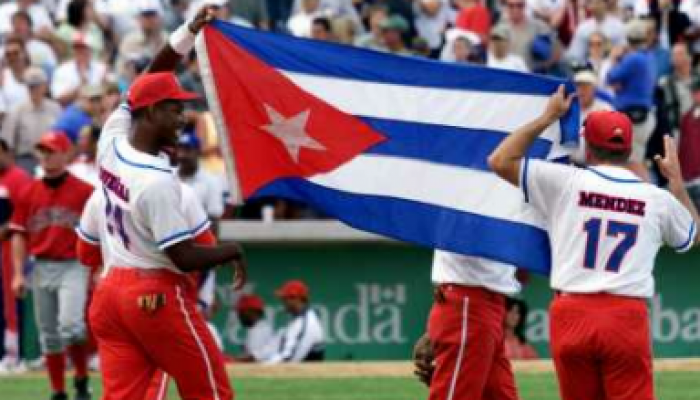The ever-escalating aggression against Cuba by the Donald Trump administration have a negative effect on many economic fields... including baseball fields, football fields and the field of sports in general.
Between April 2018 and March 2019, the consequences of Washington's economic blockade in Cuba's sports industry grew ten times compared to the previous one-year period.
Here is a brief review of the impact of U.S. aggressions on sports in Cuba:
* The main effects were concentrated in the management of Cubadeportes SA, the Inder Trading Company, the insurance and sports activities' areas of the Institute of Sports Medicine, the Marabana-Maracuba Project and the Anti-doping Laboratory of Havana.
* The prohibition of direct access to American brands such as Louisville, Wilson, Xbat, Rawlings and Easton have a major impact, given that several international sports federations require their use.
* In order to make purchases and partially satisfy the needs of the sports system, many products have to be bought in third countries, which makes the products between 30 and 50 percent more expensive.
* Rawlings gloves for the National Baseball Series were acquired with a surcharge of $5,293.80.
* If the purchase of Marucci brand wooden baseball bats had been made in the United States, it would have saved Cuba as much as $5,450.
* The financing assigned through Seguro Nexy has as its only requirement the employment of Japanese companies. These, however, did not run the risks of including American items or employing their distributors in that country.
* Cuban companies and specialists could not attend the sporting goods fairs held in U.S. cities, losing out to trade fairs and purchase of sports equipment.
* The difficulties for academic and scientific exchange between universities in Cuba and the United States multiplied. Many students and professors could not travel between the two countries for investigative research and collaboration.
* The required technology could not be completed at the Cuban Sports Research Center (CIDC), one of only 13 of its kind on the planet.
* The impossibility of making financial transactions delayed the payment of the affiliation of the Cuban Federation of Underwater Sports, which implied the loss of legal status and the permission to attend and organize events.
* The exchange options with North American specialists and practitioners of extreme and nautical sports, karting, cricket, rugby and go, among others, have been restricted.
* Cubadeportes S. A. has not been able to charge 800 thousand dollars for the provision of services in the matter of technical assistance and sales of sports activities on the island, due to the closure or the absence of banking channels to make the transfers effective from several countries.
* The restrictions of trips to Cuba, as a result of the US policy, meant for Cubadeportes S. A. the sales decrease by value of 2.5 million dollars.
* Cuban boxers could not attend the qualifying tournament heading to the Youth Olympic Games of Buenos Aires, due to difficulties with the granting of visas.
* The purchase of equipment for rowing in distant markets around the world involved an additional expense of 10,000 dollars. And in order for Cuban rowers to attend an important event in the United States, visas in Mexico had to be obtained, with an additional cost of thousands of dollars.
* And the list is endless...
At the same time -- if this weren't enough -- actions by traffickers of Cuban athletes continued, trying to rob Cuba of its sporting talents. The failure to grant permission for Cuban baseball players to go to the U.S. and play on Major League Baseball teams -- which Cuba will now grant, but the Donald Trump administration says "no" -- means an economic loss for both the U.S. and Cuba. Baseball players should be given the legal opportunity to play and develop their skills, without having to feel that they are "abandoning" their people. Cuba is ready and willing to allow this to happen, but now it's the U.S. that gives the thumps down.


